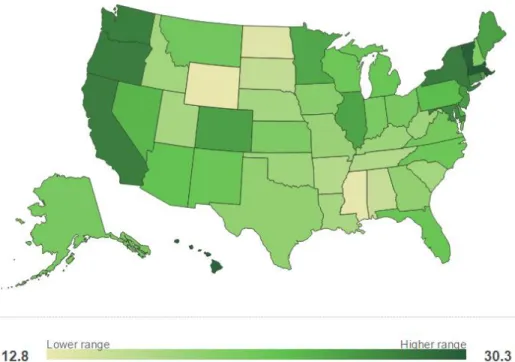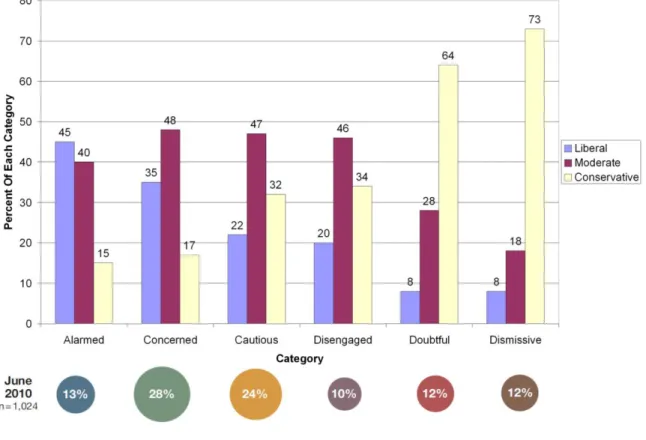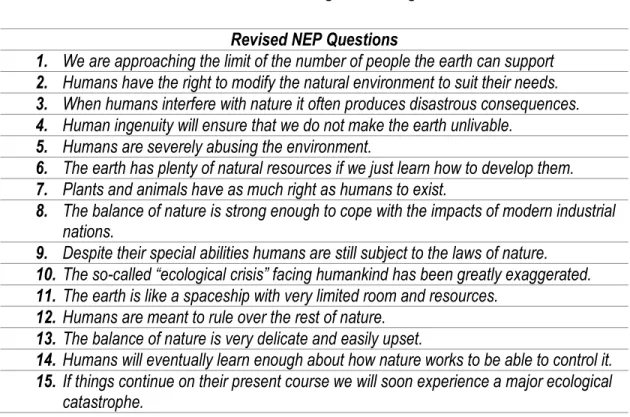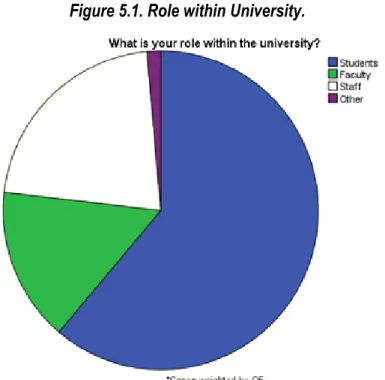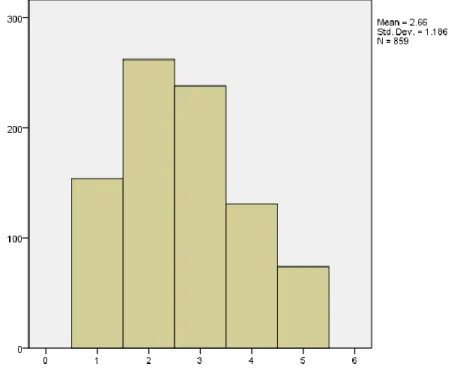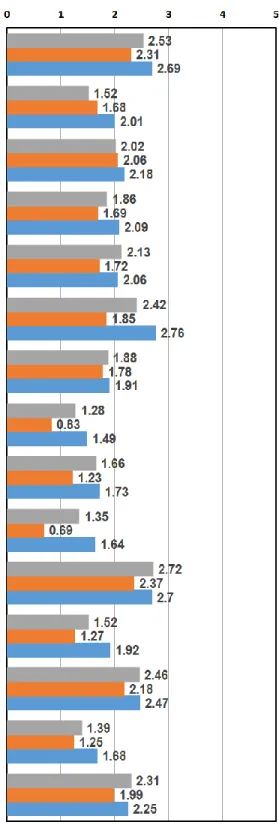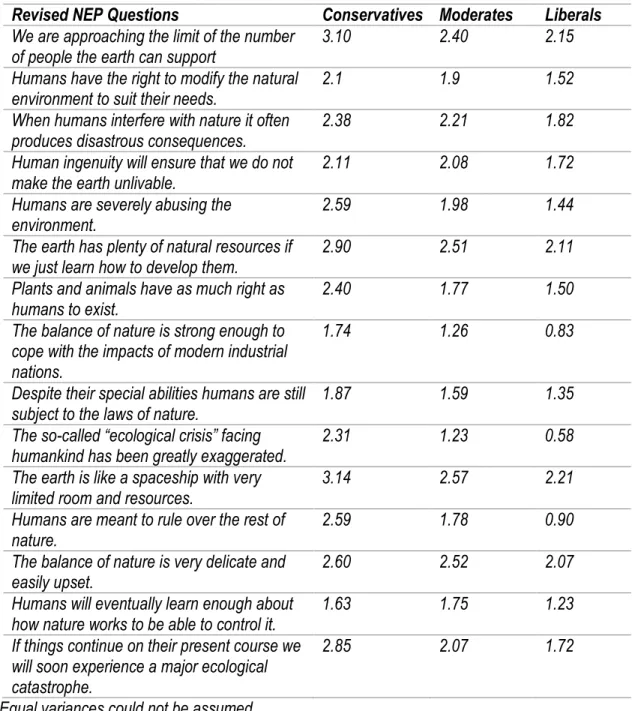KENDALL LANE MCDONALD: Red, Blue, and Green: Determining Environmental Orientation on the University of Mississippi Campus. Understanding these attitudes is essential to the growth of sustainability and environmental awareness at the University of Mississippi. Environmental attitudes and attitudes toward sustainability at the University of Mississippi have yet to be explored, and it is still unknown whether participation is low.
In 2014, Chancellor Dan Jones would again sign the ACUPCC for the University of Mississippi as a renewed commitment to sustainability, climate neutrality and as a means to initiate plans to expand the Office of Sustainability and related initiatives. The Office of Sustainability also oversees the University of Mississippi Composting Project, which collects and composts food waste from the Residential College and other campus locations for use by Landscape Services. The Green Fund is also a product of growing concern about sustainability issues on the University of Mississippi campus.
The University of Mississippi currently contributes $15,000 annually to the Green Fund, which is combined with accrual. She states that this policy would be structured in a way to provide additional insight into sustainability progress at the University of Mississippi (Anne McCauley, personal communication, March, 2015).
Education Correlates with Environmental Sustainability
In addition to a shift in attitudes toward sustainability, McCauley also believes there has been a shift in attitudes toward greater acceptance of climate science that supports anthropogenic global climate disruption:. Although anecdotal, it appears that with the growth in institutional support for sustainability, concern for environmental impact is becoming more of a priority at the University of Mississippi, among both administration and students of the university. Additionally, policy priorities at a university are shaped by the concerns and interests of its students and other constituencies, and McCauley believes that a greater understanding of the perspectives that students, staff, and faculty hold toward these issues provides important contextualization of the Office of Sustainability's offer efforts. to reach new audiences.
It is unclear where this correlation comes from, and whether it is meaningful in any policy-oriented context. It is clear that these groups operate in different ideological spheres - groupings that can be studied independently of each other, while also forming a whole (in the context of a university community). As a result of the information gathered from the literature, this study expects that the faculty will hold the most pro-ecological views from the three categories.
It then follows that students will hold the least pro-ecological views out of the three categories.
Gender Correlates with Environmental Sustainability
Because of this observation, this thesis will predict a measurable difference in the environmental attitudes of students, faculty, and staff. It is not clear whether the difference in environmental engagement between men and women is merely a correlation or a substantive difference. It is also not clear what causes the difference between men and women in terms of their ecological worldviews.
In the aforementioned study after the documented differences between women and men in environmental attitudes, the authors conducted an additional study into the environmental attitudes of male versus female children and found that the difference exists at a young age. In their conclusion, the authors of this study considered the possibility that the difference in methods of socialization between developing female and male children causes the contrast (Zelezny, et. al., 2000). Because of this contrast, one that is well supported in the literature, it would be appropriate to structure an analysis of environmental attitudes to specifically address potential differences between men and women.
This thesis will anticipate and record differences between women and men in their environmental attitudes and beliefs. This study expects that women at the University of Mississippi will hold measurably more pro-ecological views than men.
Political Affiliation Correlates with Environmental Sustainability The University of Mississippi is experiencing ever-increasing growth in all
They were unlikely to identify as politically conservative, and much less likely to identify as part of the Tea Party movement (see Figure 2.3) (Leiserowitz, et. al., 2010). The Revised New Ecological Paradigm Scale has a long history of use and was born out of the New Environmental Paradigm (NEP). A 1984 Washington State study by the authors of the scale found that the original NEP demonstrated strong internal consistency (a coefficient alpha of .81) and conclusively distinguished between known environmentalists and the general public (Dunlap et. al., 2000).
They felt that this supported the argument that the items of the New Environmental Paradigm Scale could legitimately be used to measure environmental perspectives, and that "endorsement of the NEP was, as expected, negatively related to endorsement of the DSP (Dominant Social Paradigm )" (Dunlap et al., 2000). In 1990, Dunlap and Van Liere updated the scale and renamed it the Revised New Ecological Paradigm scale (Revised NEP). Since the conception of the Revised NEP, new studies have attempted to either build on Dunlap and Van Liere's methodology or replace it with other instruments.
The first is the Brundtland Report, also known as "Our Common Future" (WCED, 1987). Attitudes or mindsets are generally understood as "the persistent positive or negative feeling about a person, object or issue" (Kollmus et. al., 2002).
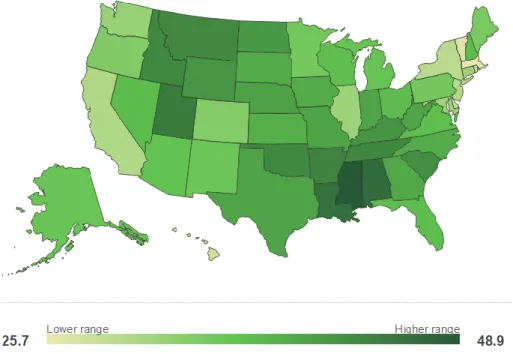
RESEARCH DESIGN
The Revised New Ecological Paradigm scale
The eight odd-numbered items are worded so that agreement indicates a pro-ecological view, and the seven even-numbered items so that disagreement indicates a pro-ecological worldview. The Earth has sufficient natural resources, if only we learn how to develop them. The balance of nature is strong enough to withstand the consequences of modern industrialized countries.
Lifestyle questionnaire
The highest mean score was 2.66 and occurred in response to the statement "Earth is like a spaceship with very limited space and resources." While this represents the least ecological response in campus-wide averages, nearly half of respondents indicated that they were in either moderate or strong agreement, but it also indicates that there is considerable uncertainty or neutrality about the statement (Figure 5.2 ). When humans interfere with nature, it often produces disastrous consequences” yielded a mean of 2.54, as did “Earth has many natural resources if we just learn how to develop them”. The statement "The balance of nature is very delicate and easily disturbed" had a mean of 2.43. All three items displayed similar uncertainty patterns as item 11, “Earth is like a spaceship with very limited space and resources,” where the second largest percentage of respondents indicated a 3 on the Likert scale.
The lowest mean value (indicating the most pro-environmental response) was 1.34 and occurred in response to the statement "The so-called 'ecological crisis' facing humanity has been greatly exaggerated." Similarly low was the average mean response to the statement "The balance of nature is strong enough to cope with the impacts of modern industrial nations" at 1.43. When male respondents were isolated, the lowest (most pro-ecological) mean value occurred in response to the statement "Despite our special abilities, humans are still subject to the laws of nature." The mean value of this statement was 1.49. When female respondents were isolated, the lowest (most pro-environmental) mean was the response to the statement: "People will eventually learn enough about how nature works to be able to control it." The mean value of this statement was 1.48.
The highest (least pro-ecological) mean occurred in response to the statement "Earth is like a spaceship with very limited space and resources," and was equal to 2.65. Women had more pro-ecological views in response to all statements, with the exception of the statement "Earth is like a spaceship with very limited space and resources", where the mean female response (2.65) was only 0.01 higher than the male average. answer (2.64). Students responded most pro-ecologically to one of the Revised NEP's strongly anti-ecological statements, "The balance of nature is strong enough to withstand the impacts of modern industrialized countries," with a mean of 1.49.
Students responded similarly pro-ecologically to statements “The so-called “ecological crisis” facing humanity has been greatly exaggerated,” and “Humans will eventually learn enough about how nature works to be able to control it," with means from 1.64 and 1.68 respectively. Faculty most strongly disagreed with the statement "The so-called 'ecological crisis' facing humanity has been greatly exaggerated," with a mean of 0.69—the lowest mean response to any statement of all three categories of students, faculty, and employees. Faculty had the least pro-ecological response to the statement "Earth is like a spaceship with very limited space and resources," with a mean of 2.37.
The earth is like a spaceship with very limited space and resources." The higher mean in this case was created by a greater sense of uncertainty in staff responses to this item. Staff responded with the lowest mean average, a 1.28, to the statement “The balance of nature is strong enough to handle the impact of modern industry. To reinforce this, faculty means answers to items 3 and 4—the reverse of the above statements—.
A person who exhibits a value-action gap "talks the talk" but doesn't "walk the walk." The concept is often involved in discussion of environmental behavior and attitudes, as the value-action gap often appears in the context of environmental issues (Blake, 1999). First, people may identify themselves as "the wrong kind of person" to address the ethical obligations that come with it. It may be a sociological construct – the effect of gender roles, perhaps – that has created this apparent divergence between women and men at the University of.
For example, if one were to take a walk around campus, they would see many prominent buildings and programs named after Republican leaders - the Trent Lott Leadership Institute, the Haley Barbour Center for Manufacturing Excellence, etc.

Survey Methodology text
Instructions: In response to the following statements, please indicate the extent to which you agree or disagree. I generally do not voluntarily participate in outdoor recreational activities (camping, hunting, fishing, hiking, boating, etc.).
Recruitment text
Informed Consent Form
IRB Approval email
New trends in measuring environmental attitudes: Measuring endorsement of the new ecological paradigm: A revised NEP scale. Exploring the use of the revised New Ecological Paradigm (NEP) scale to monitor the development of students' ecological worldviews.
